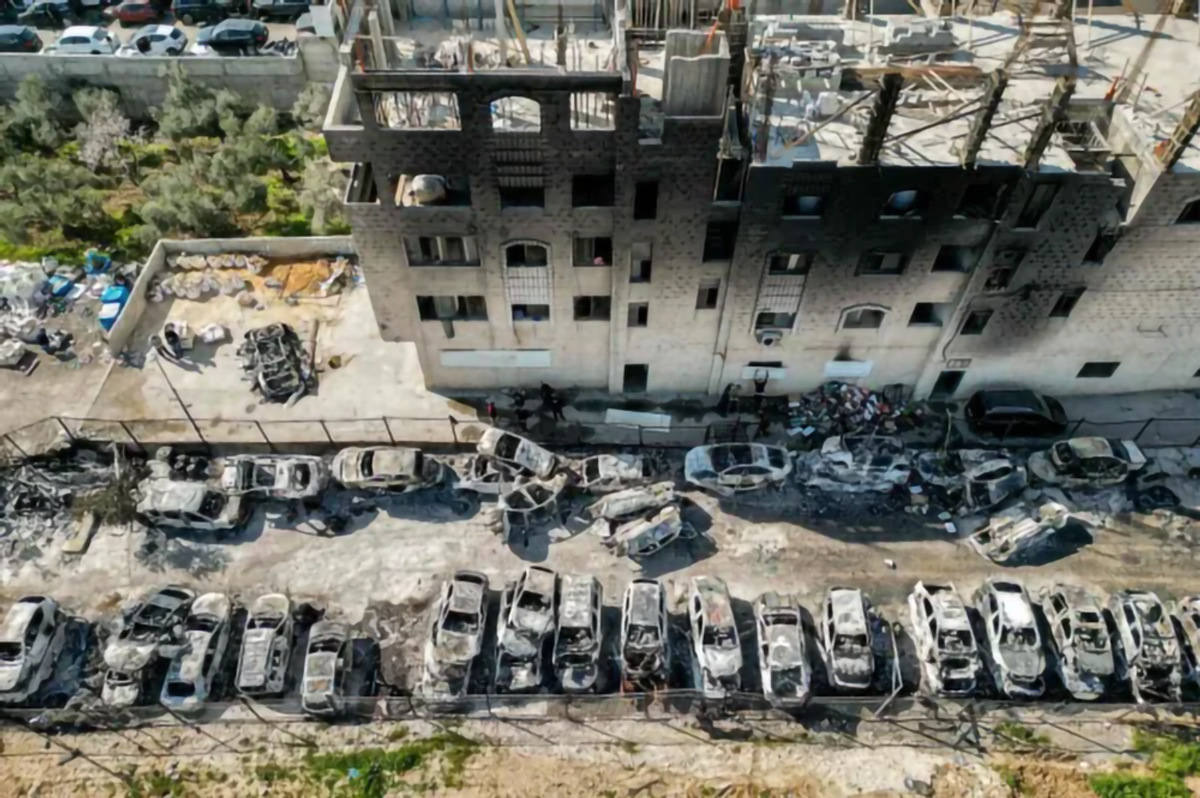Update Settler Violence
February 28, 2023 · 4 min reading
Settler movement given greenlight to organize attacks
Israeli settler movement targets Nablus.

GSC Staff
info@goodshepherdcollective.org

As we move toward Ramadan this year, Israeli forces and settlers are ramping up violence against Palestinian communities everywhere. While these escalations are a pattern of the Israeli state, they have increased with the new far right Israeli coalition controlling the government.
Last week Israeli forces stormed Nablus in broad daylight, entering a busy market in the center of the city and killing a total of eleven people. Among those murdered were a boy who was fleeing live fire, two elderly men, and Palestinians who were part of organized resistance. The Israeli forces injured more than a hundred more Palestinians during this massacre, using tear gas and shooting with live fire.
In Palestine, as we—like many others—reported on this attack, tweeting about it live, we watched in horror as the number of Palestinians killed at the hands of Israeli forces continued to grow. Local residents shared clips of drones overhead, soldiers in the center of their city, live ammunition, and tear gas. This was an attack on a major city at a time when Israeli forces knew the area would be crowded and busy. It was no coincidence that so many Palestinians were injured, most of them by live ammunition.
This is only the latest attack in a series. Since the beginning of the year, Israeli forces have carried out attacks in Jericho and Jenin which killed more than fifteen people combined in attempts to quash Palestinian resistance.
On, February 26, Israeli settlers attacked Huwara, a Palestinian town south of Nablus. Nearby Huwara are many Israeli settlements and outposts with reputations for violent assaults on Palestinians–among them, Yitzhar. Escorted by Israeli forces who served as armed protectors, hundreds of Israeli settlers poured into the town and burned between 30 and 100 cars, torched homes, and killed at least one Palestinian man. Many others were attacked, stabbed, shot, beaten, and many of those not attacked directly by settlers suffered from tear gas inhalation. Settlers are also reported to have attacked the nearby villages of Burin and Qaryout.
Israeli politicians and public figures have rushed to distance themselves from this undeniably inhumane assault on Palestinians of all stripes—with Netanyahu notably asking citizens not to “take the law into their own hands” after working to make guns more accessible to Israelis only a month ago. Still, claims that this violence is not the true character of the state, or that zionism is not based on violence and Jewish supremacy, are nothing but attempts to distort reality.
The ongoing, mounting attacks by Israeli settlers and armed forces alike are only the latest iteration of Israeli colonial violence, which exists to forcibly displace Palestinians from their homeland through resource theft and violence. And while we could spend all day dissecting the racism underpinning the responses from American politicians such as State Department spokesman Ned Price, what Palestinians need is not another empty gesture, call for senators to apologize for meeting with Israeli politicians, or articulation that zionism is not Judaism. They certainly do not need allies to fundraise for the legacy NGOs in the global north.
Palestinians need allies abroad to engage in processes that strip resources directly from the actors engaging in the destruction—political action that solidarity partners can begin in their own communities. This means going beyond education to effect change in our communities. While GSC and our partners on the ground have put forth the Defund Racism campaign to disrupt the funding going to organizations like the Hebron Fund—whose spokesperson affirmed that the settlers involved in the Huwara attack are zionists representing many Israelis—or Regavim, that is not the only way forward. But solidarity that remains in the form of words and sympathetic gestures is no longer enough.
Support
The Good Shepherd Collective rejects the model of large grants from liberal institutions because of the ways it can shape the work. Instead, we premise our work in the financial investments from individuals who believe in the future we're trying to build. Consider becoming a monthly donor.
Donate